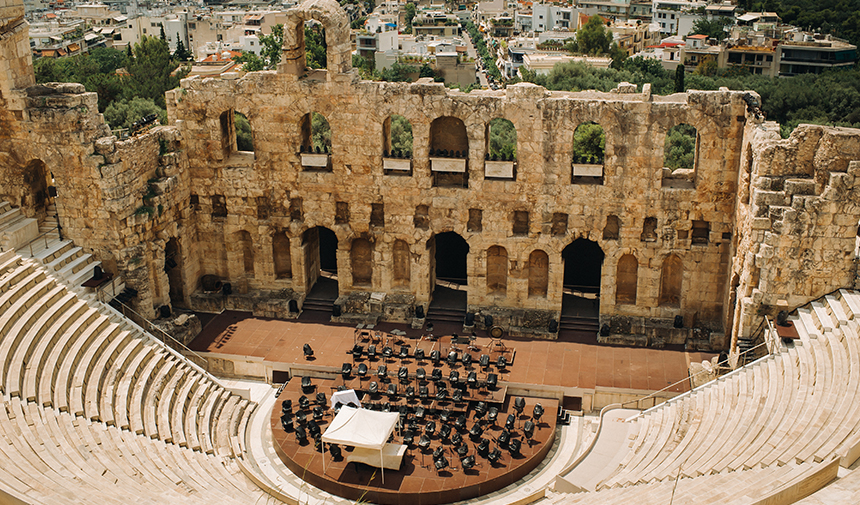Ancient Greek theater is one of the cornerstones of western culture and the foundation of the dramatic arts. Beginning in the 6th century BC, Greek theater, with its tragedies and comedies, both entertained audiences and raised deep emotional and philosophical questions. The social structure, mythological beliefs and political life of ancient Greece contributed greatly to the development of these theater genres. For this reason, ancient Greek theater has had a great influence on modern theater and literature.
Tragedy The Cornerstone of Classical Drama
Ancient Greek tragedy is a dramatic genre that deals with heavy themes such as human nature, fate and moral dilemmas. Tragedy has its origins in Greek mythology and religious festivals. These plays, staged during celebrations dedicated to Dionysus, depict the relationship between human beings and divine forces and the inevitable difficulties of life. Great dramatists such as Aiskhylos, Sophocles and Euripides are among the main representatives of tragedy.
Tragedy focuses on the fall and suffering of the hero. The hero often makes a mistake or is destroyed by the inevitable force of fate. The building blocks of tragedy are the tragic mistake (hamartia), the tragic hero and the tragic ending. Aiskhylos’ “Agamemnon”, Sophocles’ “King Oedipus” and Euripides’ “Medea” are the leading examples of classical tragedy.
The Birth and Development of Comedy
Unlike tragedy, ancient Greek comedy is a genre that deals with social criticism, humor and current events. Comedy also has its origins in festivals dedicated to Dionysus, but comedy aims to criticize society and make people laugh. Writers such as Aristophanes and Menander are important figures representing comedy.
Aristophanes’ comedies contain political and social satire. In his works, politicians, philosophers and other prominent figures of the time are often ridiculed. Aristophanes’ works such as “Lysistrata” and “Clouds” show the power of comedy and its impact on society. Menander, on the other hand, is a representative of the New Comedy and deals with more personal topics such as daily life and family relationships.
Cultural Heritage and Influences of Ancient Greek Theater
The influence of ancient Greek theater has left a deep mark on Western art and thought. Tragedy and comedy laid the foundations of today’s dramas and comedies. In his work “Poetics”, Aristotle analyzed tragedy in detail, explaining the tragic structure and the role of the hero in drama. This analysis formed the basis of later theories of theater and literature.
Greek theater also added a philosophical dimension by addressing important issues of society and ethical questions. The power of tragedies and comedies to criticize society is also reflected in modern works of literature and theater. Ancient Greek theater also influenced the architecture of theater buildings. Ancient Greek theaters used a technology beyond that period in terms of acoustics and audience placement.



